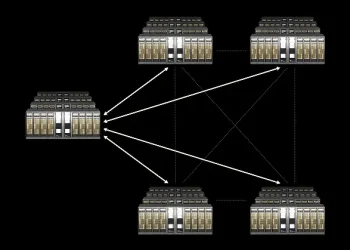The Biden-Harris Administration, partnering with Wolfspeed, Inc., has proposed a $750 million investment under the CHIPS and Science Act.
This funding will support the creation of the world’s largest silicon carbide manufacturing hub in North Carolina and New York, aiming to strengthen the U.S. semiconductor supply chain and create over 5,000 jobs.
Wolfspeed’s Silicon Carbide Expansion
Wolfspeed, a leader in silicon carbide technology, plans to establish the John Palmour Manufacturing Center in Siler City, North Carolina. This 2-million-square-foot facility is set to become the largest silicon carbide wafer plant in the U.S. and the first high-volume 200mm wafer manufacturing site globally.
Alongside this, Wolfspeed will expand its existing facility in Marcy, New York, increasing its production capacity by 30%.
Job Creation and Economic Impact
The initiative is expected to create over 2,000 manufacturing jobs and 3,000 construction jobs. These projects are not just about building facilities but also revitalizing local economies.
As the U.S. strengthens its domestic supply chain, it aims to reduce dependence on overseas semiconductor sources.
Economic Benefits:
- Stimulating local economies in North Carolina and New York.
- Strengthening the national semiconductor supply chain.
The proposed investment aligns with the Biden-Harris Administration’s broader agenda of investing in America and promoting technological advancement.
The CHIPS and Science Act plays a crucial role, offering federal support to catalyze private sector investments that stimulate U.S. manufacturing and innovation.
Wolfspeed’s Role in U.S. Technological Leadership
Founded in 1987 in North Carolina, Wolfspeed is a pioneering force in silicon carbide technology. Silicon carbide, known for its superior energy efficiency and durability compared to traditional silicon, is crucial for developing electric vehicles (EVs), renewable energy systems, and artificial intelligence applications.
“Thanks to proposed investments in companies like Wolfspeed, the Biden-Harris Administration is taking a meaningful step towards reigniting U.S. manufacturing of the chips that underpin these important technologies,” said U.S. Secretary of Commerce Gina Raimondo.
The company’s products have significant environmental benefits, including reduced carbon emissions. Wolfspeed’s silicon carbide components, for instance, are estimated to save around 72 million metric tons of CO2 throughout their lifetimes, making them a cornerstone in the push for cleaner energy solutions.
Educational and Community Initiatives
To develop a skilled workforce, Wolfspeed is partnering with local institutions, including North Carolina Agricultural and Technical State University (N.C. A&T).
They are launching the Wolfspeed Endowed Scholars Program, investing $4 million over five years to train future engineers and technicians in silicon carbide technology. These initiatives are vital to building and retaining talent in the semiconductor industry.
Educational Partnerships:
- Collaborations with N.C. A&T for undergraduate and graduate programs.
- Training and development programs for women and military veterans.
Additionally, to address the local childcare challenges faced by many working families, Wolfspeed is increasing the capacity and operating hours of existing childcare providers in both states.
This step ensures that employees have access to affordable childcare, supporting family stability and workforce retention.
Sustainability and Future Prospects
Wolfspeed is also committed to sustainability. The company aims to reduce operational emissions by 50% by 2030 and has already achieved Silver Leadership in Energy and Environmental Design (LEED) certification for its New York facility.
The upcoming facility in Siler City will pursue similar certifications, ensuring energy and water efficiency.
Wolfspeed’s Commitment |
Details |
|---|---|
| Emission Reduction | 50% cut by 2030 |
| LEED Certification | Achieved in New York; pursued in North Carolina |
These developments show Wolfspeed’s dedication not only to technological advancement but also to sustainable growth, reinforcing their role as a leader in the semiconductor industry.
The Impact of the CHIPS Act
The administration designed the CHIPS and Science Act as a central pillar of its economic plan to reduce reliance on foreign semiconductors. By investing heavily in U.S. manufacturing, it encourages private investments, stimulates job creation, and revitalizes communities.
Wolfspeed’s expansion helps the U.S. become a global leader in silicon carbide manufacturing for next-generation technologies.
The combination of federal support and private investment will ensure that the U.S. not only meets current demand but also becomes a hub for innovation and technological leadership in the semiconductor space.
Sources: THX News & US Department of Commerce.









